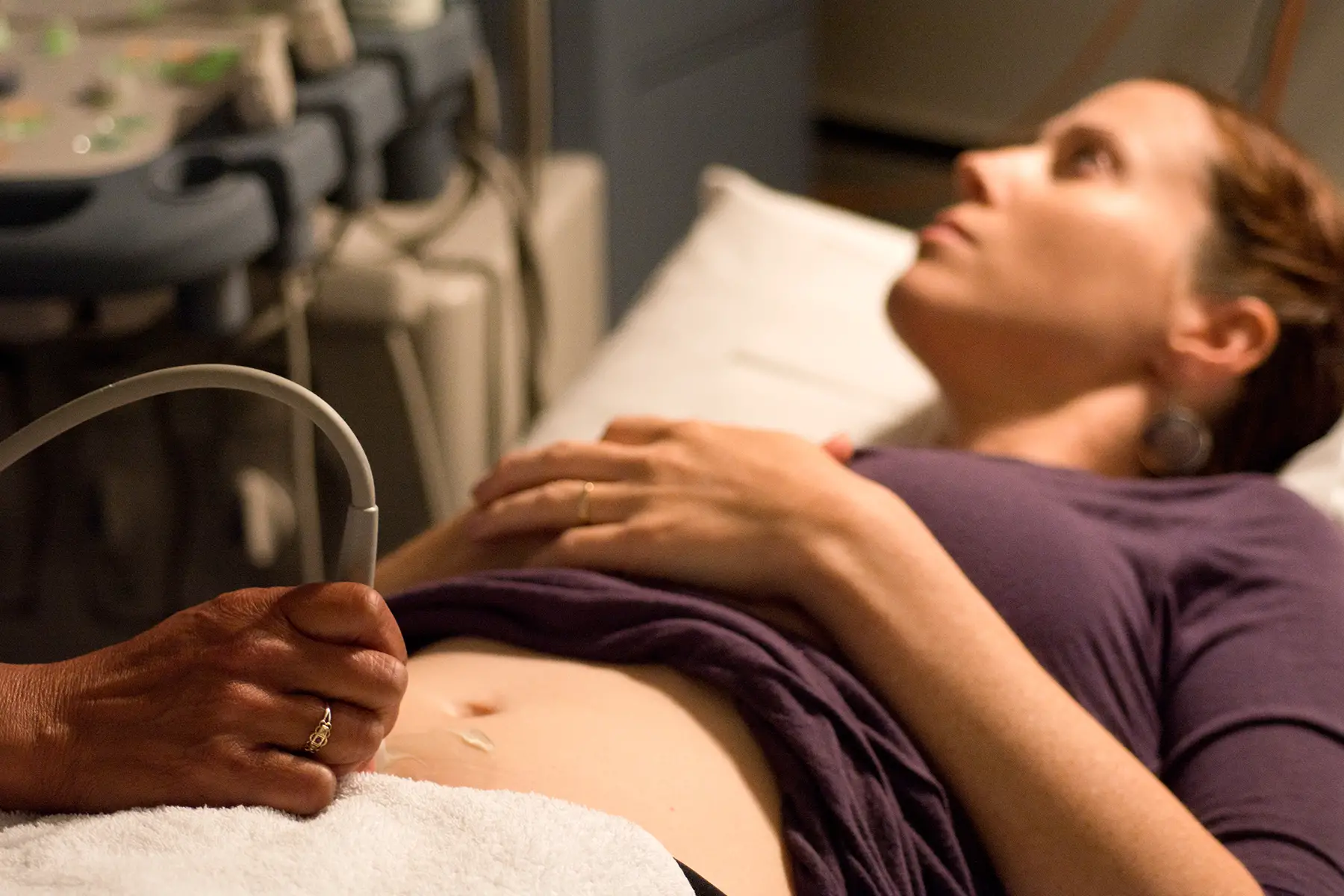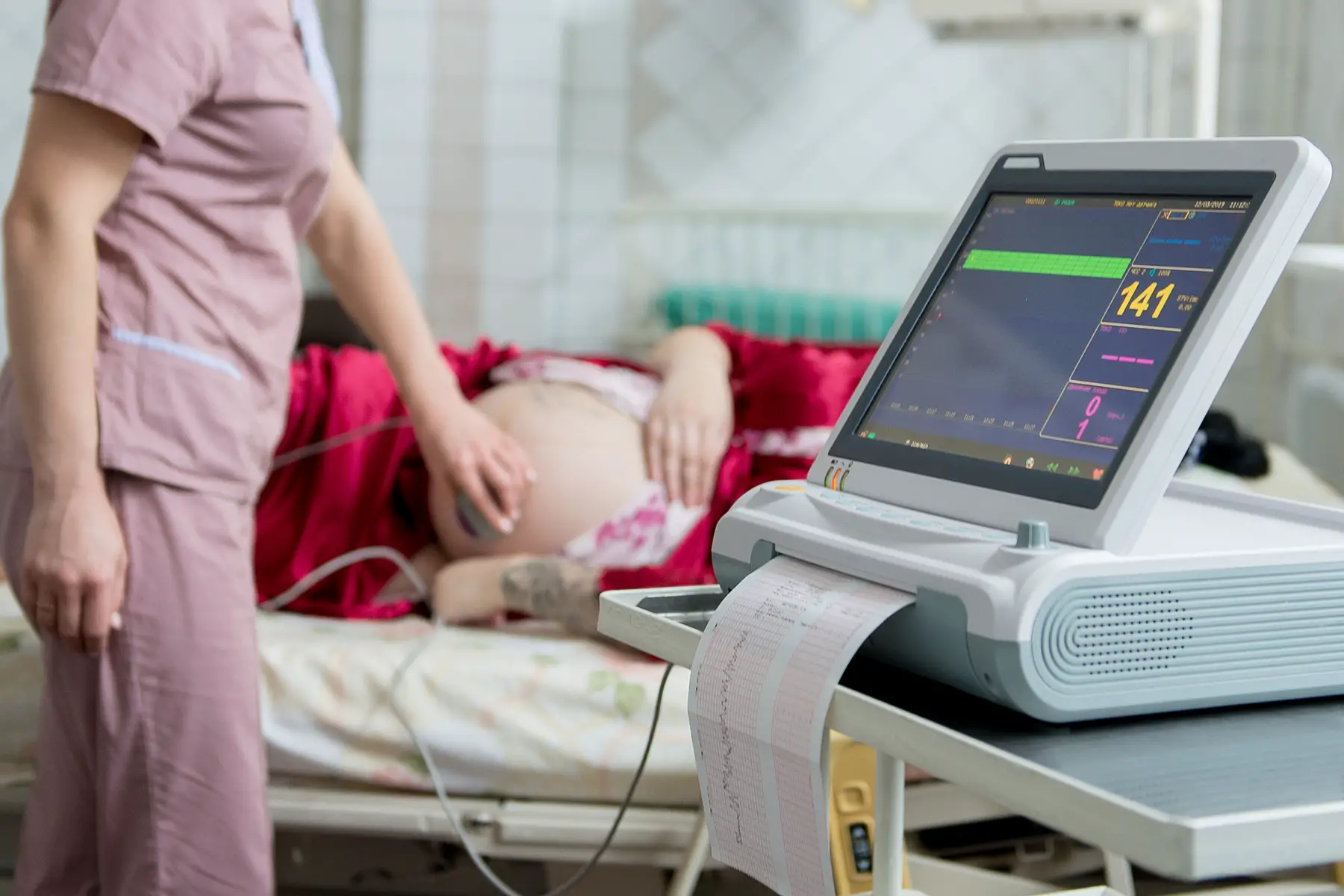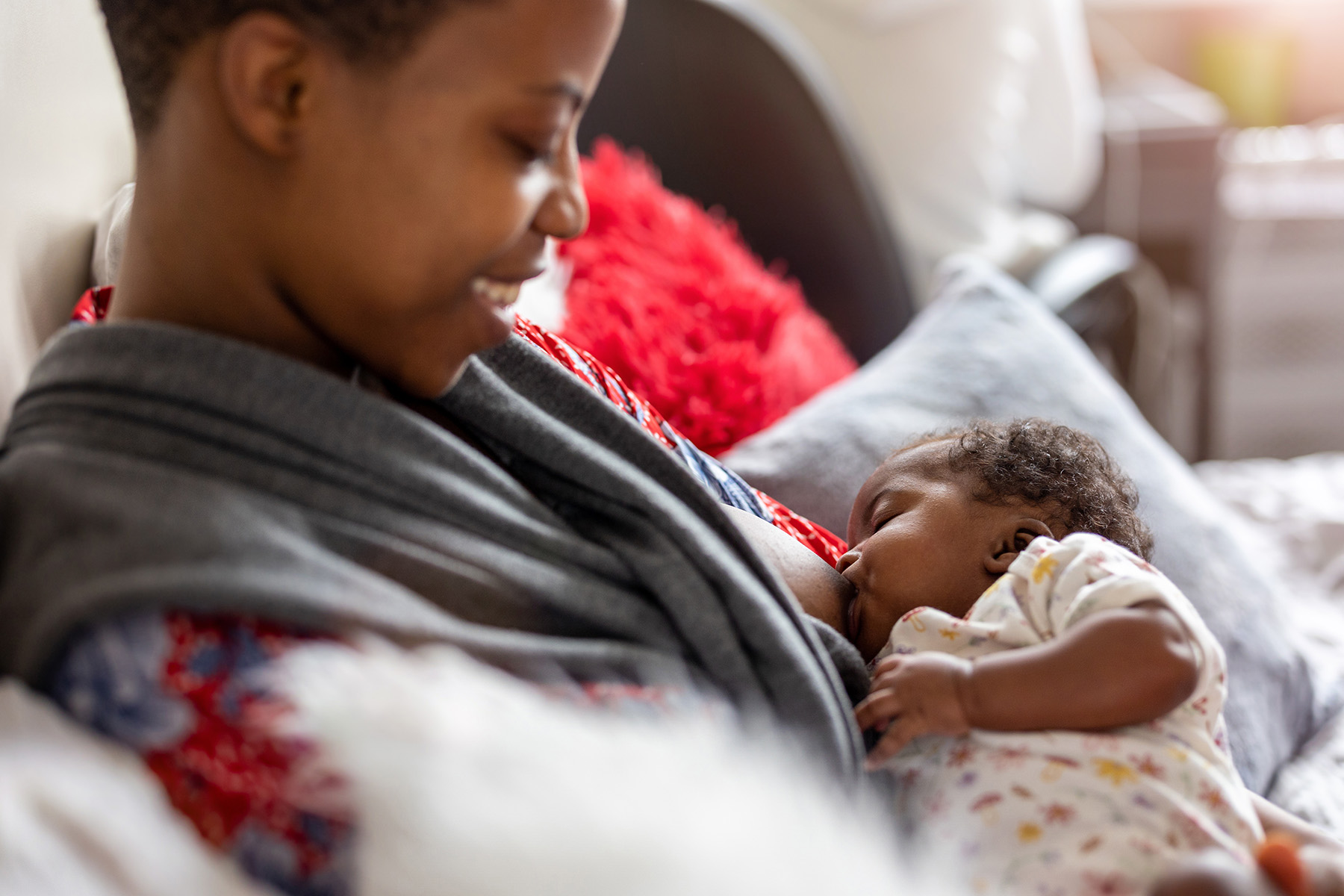With high-quality public and private healthcare systems, moms-to-be have plenty of choices for having a baby in Belgium. What’s important, however, is to make sure you have the healthcare coverage necessary well in advance.
The majority of births take place in maternity hospitals. Midwives, nurses, gynecologists, and physiotherapists oversee this. Specialist clinics (maison de la naissance) and private hospitals are also options for having a baby in Belgium. Homebirths are an option, but they remain fairly uncommon.
Given its status as host to EU headquarters, there’s a large expat community in Belgium. Naturally, the general standard of healthcare is excellent. There is a range of support services available, making the pre- and post-natal process safe and comfortable. Expatica’s guide to healthcare in Belgium explains how to navigate the system for newcomers to this multicultural nation.
Expatica’s inclusive guide to childbirth in Belgium covers a range of topics:
- Pregnancy and childbirth in Belgium: an overview
- Accessing maternity services
- Insurance for maternity costs in Belgium
- Pregnancy testing in Belgium
- Prenatal care in Belgium
- Abortion in Belgium
- Giving birth in Belgium
- Maternity aftercare in Belgium
- Registering a birth in Belgium
- Non-residents, visitors, and tourists giving birth in Belgium
- Belgian parental leave
- Child benefits in Belgium
- Useful resources
Infino
If you’re having a baby in Belgium, let Infino handle your child benefit and maternity allowance payments. This child benefit fund provides tailored guidance, expert advice, and a sustainable approach, building a bright future for your child. Find out how they can support your family – visit Infino online to apply.
Pregnancy and childbirth in Belgium: an overview
Expat-heavy Belgium is clearly a great place to have a baby. In 2016, nearly a quarter of all births were to foreign mothers, Statista reports, putting the total at 29,000. Approximately 92,000 children were born to a Belgian mother. Naturally, citizenship isn’t easy for those foreign babies. One parent must have been born in the country and lived there for at least five years in the decade preceding their birth.
Nevertheless, Belgium has a lot going for it. The child benefits packages are among the most generous in Europe. Tere is a birth grant of over €1,200 for the first child and more than €930 for subsequent children; amounts differ in Flanders, Wallonia, and Brussels, however. In general, women will find that all their pregnancy costs are covered, thanks to a combination of insurance and social welfare.

Women can give birth in a hospital, at home, or at a birth house; the latter brings together the comforts of home with a more professional environment. Throughout your pregnancy, your gynecologist remains your main point of contact. In Flanders, your doctor also plays an important role.
When it comes to parental leave, however, Belgium lags behind the Nordics. For example, new dads and mums (in the case of a same-sex family) in Belgium only get 15 days’ paternity leave. In comparison, Norway entitles them to 15 weeks.
Other interesting statistics? Women who give birth in Belgium are 30.5 years old on average. As of 2015, more babies have been born to unmarried couples than to those who are married.
Accessing maternity services
Your GP can refer you to a gynecologist. Someone who hasn’t nailed down a doctor must first register with Belgian social security and a state health insurance scheme. This is in order to get reimbursements for doctors’ visits and medical treatments. Expatica’s guide to insurance has more details on how to go about this.
Alternatively, you’re free to choose your own gynecologist. There are plenty of organizations for those looking for help on this front. Reach out to the French-speaking ONE (Office de la Naissance et de l’Enfance), Dutch-speaking K&G (Kind en Gezin), Kaleido in Ostbelgien, or the Brussels Childbirth Trust (BCT). These organizations in Belgium are able to provide you with a gynecologist free of charge. These services will all be covered by mandatory health insurance paid by anyone working in Belgium.
Insurance for maternity costs in Belgium
Anyone who’s employed in Belgium needs to pay for mandatory health insurance; this covers all birth-related consultations and services. Dependent spouses also automatically receive cover if they don’t have their own. In Belgium, even women without insurance find that their pregnancy costs are covered. This is courtesy of the Public Social Welfare Centre (Les Centres Publics d’Action Sociale, CPAS, in French, or Openbaar Centrum voor Maatschappelijk Welzijn, OCMW, in Dutch).
For non-EU residents, the country also has agreements with more than 20 countries outside Europe (including Canada, Australia, the United States, and Japan), enabling equal healthcare access as Belgians. Visit Coming2Belgium for information in several languages.
Both public and private health insurers in Belgium provide maternity coverage for having a baby. Check with your insurer to find out exactly what receives coverage from your plan. International insurance companies providing maternity coverage to expats in Belgium include:
Pregnancy testing in Belgium
There are two ways to determine if you’re pregnant. A urine test, available over the counter at pharmacies, chemists, and supermarkets. They cost between €10 and €20 and yield a result within five minutes. It’s best to perform these after your period has been late for several days. If the test is positive, head to a doctor for a blood test – or head there directly if you want. They draw a blood sample and send it to a lab. Patients receive the results the next day. You must pay a portion of the lab costs, but the exact percentage depends on your insurance policy and personal situation.
Prenatal care in Belgium
An appointment with a doctor or midwife at your medical center is the first port of call. The degree of contact with your doctor throughout the pregnancy varies according to which region you live in. Doctors in the Flemish region tend to play a key role throughout the pregnancy, as do gynecologists. In the French-speaking areas of Belgium, however, women generally only see their gynecologist.
In the French-speaking regions, expectant mothers have regular check-ups with a Medical Social Worker (travailleur medico-social or TMS) from ONE. Once pregnancy is confirmed you will receive a maternity booklet, known as the Carnet de la Mere in French. You must bring this booklet with you to all future consultations with your GP or TMS.
In Flanders, meanwhile, mothers receive regular home visits from a nurse and can attend prenatal courses. Some of these are available in English.
In the German-speaking region, Kaleido is your point of contact for pregnancy services. However, administrative matters go through the region’s department for family affairs.
Antenatal and Baby Brussels organizes antenatal classes in English as well as mother and baby groups.
Scans, tests, and checks
During your first visit to the gynecologist or midwife, they may offer an initial ultrasound to confirm the pregnancy and the number of embryos. This rules out ectopic complications and determines a due date. Regular monthly check-ups follow until the seventh month. After week 28, you’ll consult fortnightly, moving to weekly visits from week 36.
At these examinations, the medical professional checks your blood pressure, weight, the baby’s heartbeat, and your fundal height, which measures the size of your uterus. During your pregnancy, your care provider administers a few blood tests. Among the areas tested are your blood group and rhesus factor, iron levels, toxoplasmosis, and the cytomegalovirus. Tests may be requested more frequently if there’s a cause for concern.

Your provider also offers a screening for chromosomal abnormalities, including Down’s Syndrome and tests for gestational diabetes and Group B streptococcus.
Insurance (mutuelles in French and ziekenfonds in Dutch) typically covers three ultrasounds over the course of the pregnancy, a combined test for chromosomal abnormalities between 11 and 14 weeks, and streptococcus. Coverage varies, however; check with your insurer or consider private insurance.
The non-invasive Harmony prenatal test (NIPT), which offers close to 100% accuracy for Down’s (trisomy 21) and an indicative risk assessment for Edward’s (trisomy 18) and Patau’s (trisomy 13), is not reimbursed. This test costs between €450–600.
It’s worth remembering that under Belgian law, patients have the right to give their consent before beginning any procedure. The reason and urgency for any procedure must always be explained to you, as well as any risks and side effects. You’ll be within your rights to ask about these.
More information on tests and checks when you’re pregnant is available from the Belgian Healthcare Knowledge Center (PDF).
Abortion in Belgium
In 1990, Belgium legalized abortion within 12 weeks of conception, instituting a mandatory six-day period of counseling and reflection to allow women time to change their minds. As with other European countries, however, Brussels struck abortion from the nation’s penal code in 2018. In practice, however, the procedure must still be carried out within 12 weeks. Doctors may refuse the procedure on grounds of conscience but must provide patients with the name of an alternate option.
Abortion after 12 weeks is possible if the woman’s life is in danger or the fetus shows signs of a severe and incurable illness or disability.
By law, nobody can prevent a woman from having an abortion. Attempts to prevent access to abortion are criminal acts, whatever the methods used.
Women can ask their doctors to recommend an abortion clinic or hospital, or head to one directly, armed with proof of identity, social security card, and if available, a blood group card and ultrasound test. To contact an abortion clinic, visit the Fédération Laïque de Centres de Planning Familial in Brussels and Wallonia, Luna in Flanders and Kaleido in East Belgium.
Abortion procedures in Belgium
The abortion pills Mifepristone (also known as RU 486, Mifegyn, Mifeprex) and Misoprostol (also known as Cytotec, Arthrotec, Oxaprost, Cyprostol, Mibetec, Prostokos or Misotrol), are also available for early-stage pregnancies. They can be administered up until to 49 days of amenorrhea, or seven weeks after the first day of the last period. The pills are available from gynecologists or family planning centers.
Since 2001, abortions are reimbursed by state insurance if the clinic has an agreement with the national institute for social security (INAMI/RIZIV); in this case, women only pay €3.80. Abortions at a hospital or one-day clinic are not fully reimbursed; women could incur charges of between €32 to €250, depending on the facility.
Just under 20,000 abortions occur each year in Belgium, according to the World Health Organization.
Giving birth in Belgium
In contrast to countries where women leave the hospital within hours of giving birth, expectant Belgian mothers often stay for at least five days. In addition to doctors and midwives, the delivery process will also involve a physiotherapist. The latter is on-hand to ensure the mother is able to recuperate physically after birth. Your gynecologist of choice will also be in attendance.
Homebirths are only possible if you’re in good health. Two midwives oversee homebirths. They stay at your home for several hours after the birth to ensure there are no complications. One midwife then drops by for a visit every day for up to two weeks after the birth. A visit to the GP is also necessary within the first week after delivery. Midwives for the Walloon region and Brussels can be found at Sage-femme.be and for the Dutch region at Vroedvrouwen.be.
Alternative birth locations include birth houses (maison de la naissance) which provide more home comforts with a midwife overseeing the birth. The houses offer a range of post-natal care services and classes. Some also allow the father to stay overnight during the birth. Some insurers cover the costs of birth houses.
As of 2019, one in five births in Belgium is by cesarean section, a relatively high proportion. Around 20% of gynecologists agree to requests for a cesarean birth without medical grounds; as a result, the KCE advises the procedure only when necessary. Insurers may not cover the costs of planned C-sections. Consult your provider prior to making a final decision about where and what kind of birth you choose.
Doulas
Doulas as birth companions and post-birth supporters give help, advice, and other support. While they have received general nurse training, their role lies more within the practitioner and emotional aspects of pregnancy. Visit the following sites to find a doula in your region:
Need to know: going into labor
Before labor, moms-to-be may want to come up with an ideal birthing plan. Although these are a great help for your supporters, midwives, and gynecologists, be aware that they’re still uncommon in Belgium. However, if you do have one, translate it into Dutch, French, or German as applicable.
When it comes to labor, modern advice recommends staying at home once you go into labor until your contractions are regular, strong, and coming every four to five minutes. At this point, call your doula or the delivery ward at your hospital. The nurse takes you through a series of questions and recommends a course of action.
Head to the hospital immediately if you’re bleeding, your waters have broken and the fluid is green, brown or yellow, if you’re in unbearable pain or are vomiting or the baby isn’t moving. Call 112 and ask for an ambulance. Phone ahead before arrival to ensure the hospital is ready and that the staff follows your birth plan.
Going to the hospital to give birth
When you arrive at the hospital, you need an identity card, healthcare card, blood group card, the name of your pediatrician, and any extra insurance documents. Bring your own towels, pajamas, comfortable clothing, slippers, disposable undergarments, breast pads, toiletries, and tools for relaxation.
At the hospital, midwives handle standard procedures and monitoring. Their initial questions about your contractions and water break help them determine how far into labor you are. A vaginal examination might be requested to see how dilated your cervix is and see your baby’s position. They then check your vitals, lightly push, and use a Doppler monitor to determine your baby’s heart rate.

They also ask about group B strep tests and may offer an IV for antibiotics or an epidural later on. Belgian maternity staff still routinely suggest shaving. If your labor is being induced, you’ll probably be fitted with syntocinon drip to help contractions quickly after arrival.
By now, you may already be in your own labor room. In Belgium, these are not shared. Depending on how busy the hospital is, you may have to move to another room when birth is imminent.
In a low-risk pregnancy, your baby’s heartbeat is monitored intermittently with a CTG machine, in line with Belgian KCE guidelines. The KCE protocol also okays drinking clear liquids (possibly with sugar) if there’s no medical counter-indication. Some hospitals restrict food and drink.
In the event that your perineum isn’t stretching enough, medical staff may perform an episiotomy. Episiotomy rates for first-time mothers giving birth in hospitals were more than half in 2010; the WHO deems a 10% rate as acceptable. Massages, upright delivery positions, and other pain relief techniques can help.
Immediately after birth, staff evaluate the baby’s health against the Apgar scale. Any resulting recommendations come at this time.
Maternity aftercare in Belgium
Babies in Belgium must attend regular check-ups with GPs during the first couple of years of their lives. Check-ups are organized through ONE, Kaleido, or the K&G. The TMS remains the new mother’s main point of contact for help on dietary advice and general development. They’ll visit the family at home or meeting with mom and baby at an access point in a hospital or clinic.
Health authorities issue the new baby a record book. Make sure you bring this to any consultation. It tracks the child’s development through measures such as weight and height and sight and hearing. It also lists any vaccinations with a slip for each. These slips need to be handed over to the medical practitioner administering the vaccination.

Parents can also choose from a range of nursery services for newborns up until the age of three. Nurseries are in many local community halls or run by the Public Social Welfare Centers. You may be eligible for a government subsidy to cover some of the costs, depending on your personal situation. You can read more information in our guide to childcare in Belgium.
Vaccinations in Belgium
Vaccinations are provided free of charge at the following stages of the newborn’s life: two months, three months, four months, 12 months, and 15 months.
The polio vaccine is the only mandatory one in Belgium. Children receive it prior to 18 months of age. However, nurseries may require several other shots before admitting the child.
Breastfeeding in Belgium
Although women legally breastfeed in Belgium, the country has some of the lowest breastfeeding rates in Europe. Mothers often return to work within about three months.
The rules are different for public sector workers, with restrictions regarding type and hours of work. Public sector workers also benefit from lactation leave in certain conditions.
Private-sector workers may interrupt their work for half an hour twice a day to feed or pump milk on days they work more than 7.5 hours a day. In both cases, you may need to tell your employer and may be asked for a doctor’s certificate.
Traditionally conservative attitudes are also changing, and moms can breastfeed in public, although you may be stared at in crowded cafes or restaurants. Look for venues that advertise that they display a breastfeeding-friendly sticker.
Registering a birth in Belgium
Parents must register a child’s birth at the municipality within 15 days of birth. The registry must take place at the town hall (maison communale) which is located closest to the place of birth, as opposed to where the parents live. To complete the registration, parents must bring a medical certificate from the hospital, a marriage certificate (if applicable), and ID cards for both parents.
After registering, you’ll receive documents for applying for child benefits. Expats can also register the birth with their consulate in order to ensure the child receives citizenship.
It is important to note that babies born in Belgium will only be eligible for Belgian citizenship if the parents have spent a minimum of five consecutive years living in the country in the 10 year period prior to the birth.
Up until recently, all newborns in Belgium had to take the father’s surname. In 2014, however, a government bill enabled parents to choose which surname the baby takes.
Non-residents, visitors, and tourists giving birth in Belgium
Non-residents visiting Belgium must have medical insurance covering any health eventuality. If you’re pregnant and think there’s a chance you may need to deliver while on holiday, check with your insurer. Most travel health insurance policies do not cover expenses beyond the first trimester, except in cases of an emergency.
Cigna Global
Expecting a baby in Belgium? Enjoy peace of mind with Cigna Global’s private healthcare. Gain access to top maternity care, pediatricians, specialists, and a global network tailor-made for your growing family. Start your parenting journey with confidence – Cigna Global has you covered.

Delivery costs in Belgium range between €2,500–4,000.
European citizens who are having a baby in France while on holiday can benefit from the reciprocal privileges provided by the European Health Insurance Card (EHIC). Belgium has reciprocal social security arrangements with 25 non-EU countries, including Australia, Canada and the US. Under these arrangements, you can claim and be awarded many of the same benefits as Belgian citizens, provided you carry out the necessary paperwork (i.e., registering with your town hall or getting your residence visa, if applicable).
Should you find you need to give birth earlier than planned in an emergency, ring Belgium’s emergency helpline at 112.
Will my child get Belgian citizenship?
A child receives Belgian citizenship only if at least one parent is Belgian. Alternatively, if one parent was born in Belgium and has lived in the country for at least five years in the decade preceding their birth. Read our guide to getting Belgian citizenship.
Belgian parental leave
If you are working, you need to tell your employer no later than eight weeks before the due date. Mothers can take up to 15 weeks of quasi-paid maternity leave. Nine of these weeks are mandatory postnatal leave. Your maternity leave can start a maximum of six weeks (or eight weeks for multiples) before the expected due date.
Self-employed mothers can take 12 weeks of maternity leave in Belgium (13 weeks with multiple births). Two of these weeks need to be taken postnatally.
New fathers and co-parents can take 15 days of fully-paid birth leave. They can take these days off all at once, or spread over a period of four months.
The insurer pays maternity benefits. Applications should be sent to your insurance fund supported by a medical certificate stating the presumed date of the delivery as well as the start date of the maternity leave.
Belgian parents also have the option to take parental leave, childcare leave or career breaks, and up to 10 days per year of unpaid ‘urgent reasons’ leave.
Child benefits in Belgium
Child benefits in Belgium differ by region. Brussels, Wallonia, and Flanders each have their own systems and terminology. The amounts are set and provided by the regional government and overseen by a public body:
- VUTG in Flanders (Groeipakket.be)
- AVIQ in Wallonia (AVIQ.be)
- Iriscare in Brussels (Iriscare.brussels)
Generally, almost every child living in Belgium is entitled to a monthly payment. And nearly every expecting parent (whether pregnant or adopting) can receive a one-off maternity allowance.
You can freely choose your child benefit fund, whether employed or self-employed. The selected fund will calculate your amount, communicate with you, and handle the money transfers. You can change funds after one year in Flanders and two years in Brussels and Wallonia.
Our partner Infino is one of the funds officially recognized across all three Belgian regions.
Useful resources
- Belgium.be: Official information and services website
- Brussels Childbirth Trust
- Office de la Naissance et de l’Enfance (ONE)
- Kind & Gezin (K&G)
- Kaleido
- Belgian Healthcare Knowledge Center
- Abortions: in Wallonia and Brussels, and in Flanders
- Midwives: Brussels and the French-speaking region and the Dutch region
- Social Security Office
- Office for Family Benefits for Salaried Persons
- Community Help Service
- Information about Belgian citizenship





